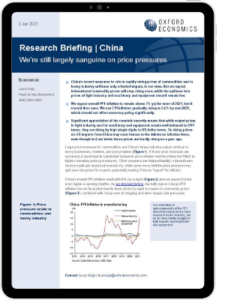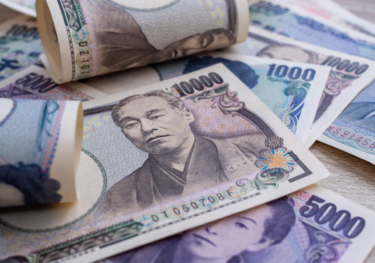China | We’re still largely sanguine on price pressures

Large price increases for commodities and China’s heavy industry output continue to worry businesses, markets, and policymakers. If these price increases are sustained, it could lead to substantial consumer price inflation and thus force the PBoC to tighten monetary policy prematurely. Other concerns are that profitability in downstream sectors could get squeezed excessively, while some worry that the price pressure may spill over into prices for exports, potentially leading China to “export” its inflation.
Download this report to find out:
- What’s driving prices higher?
- What measures did China introduce to rein in prices for commodities and in heavy industry, and will they work?
- Will China export its inflation?
- Our latest China CPI and PPI forecasts.
Tags:
Related Services

Post
BoJ likely to end zero interest rates in autumn
As expected, the BoJ maintained its policy rate at 0%-0.1% at Friday's meeting. With more confidence on the ongoing wage-driven inflation dynamics and a strong appetite for policy normalisation, the BoJ looks more likely to end its zero-interest rate policy in the autumn.
Find Out More
Post
Nowcast shows wage growth slowing sharply
Our sentiment data, developed with Penta, suggests that UK private sector wage growth slowed sharply in March and early-April. If official data mirrors our sentiment indicator, it should keep the Monetary Policy Committee on track to cut interest rates in the summer.
Find Out More